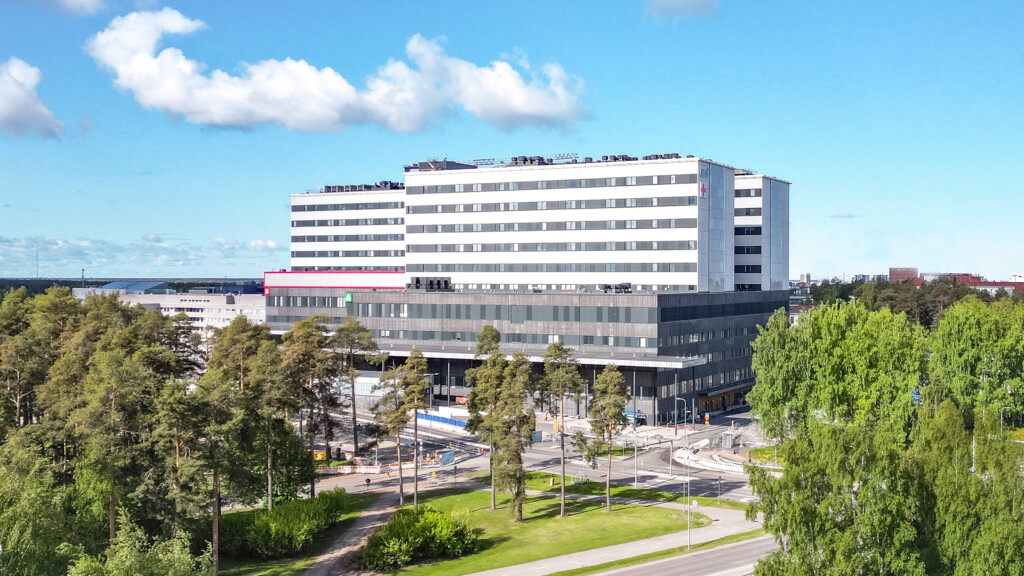🇫🇮 The Oulu University Hospital’s work for sustainability takes the gold medal in a global competition
The OYS2030 programme, through which new facilities are being built and functions are being renewed in order to tackle future challenges in specialized medical care, was ranked first in its category in the International Hospital Federation’s IHF Awards 2023.
Press release from Oulu Health
The OYS2030 programme, through which new facilities are being built and functions are being renewed in order to tackle future challenges in specialized medical care, was ranked first in its category in the International Hospital Federation’s IHF Awards 2023. The OYS was nominated in the Ashikaga-Nikken Excellence Award for Green Hospitals category, in which hospitals and healthcare organizations promoting sustainable and eco-friendly initiatives were recognized. More than 500 projects from 43 countries were included in the IHF Awards 2023. The most distinguished ones were honoured in Lisbon on the 26th of October.
Environmental sustainability and sustainable development are being taken into account during the OYS renewal programme, both during construction and in the planning of the hospital’s future operations. The new hospital aims to improve energy efficiency while saving about 30 to 40 per cent compared to the old hospital. Planning to use district heating as its main source of heating, the hospital will have an energy recycling system where the condensate heat produced will be recycled for recovery in the heating of facilities and water, among other things. This will make up an energy-efficient and cost-effective solution. A biogas power plant has also been built in the vicinity of the hospital to partially replace electricity with the steam needed by the hospital. In addition, energy efficiency has been sought for ventilation, temperature, and lighting solutions, which can be adjusted as necessary by means of property automation.
During the construction period, construction sites have been guided towards environmentally friendly construction through the BREAAM environmental classification system, based on European standards. The new hospital’s BREAAM value is currently 69, which is only one point away from the second-best level in the classification. Attention has also been paid to recycling waste during construction – about 98% of waste generated on-site ends up in recycling, configuring more than what is required by law.
The new hospital facilities will occupy a smaller area but will be more efficient in its use of space. User and activity-centred planning has played a key role in this: hospital staff have participated since the early stages in the design of their own future operations and the facilities, equipment, and systems they require.
New digital solutions will also contribute to the reduction of the hospital’s carbon footprint. In the future, remote medical services and other digital service channels, which have been becoming more common, will enable the hospital’s patients to not only have a pleasant but also ecological alternative to engage with the hospital, even from the comfort of their own homes.
Source: OYS2030
Contacts for more information:
Miia Turpeinen
Director of the University Hospital
[email protected]
+385 40 152 2655
Kari-Pekka Tampio
Programme Director, OYS 2030 renewal programme
kari-pekka@[email protected]
+385 40 151 4005
Originally published on 27 October.
